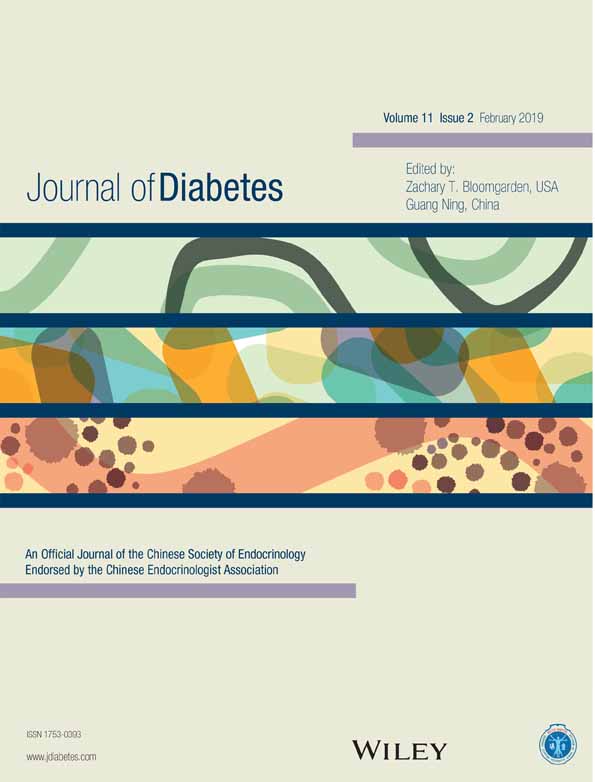Effect of a new self-care guide package on maternal and neonatal outcomes in gestational diabetes: A randomized control trial†一种新的自我护理指导的提案对妊娠糖尿病患者母婴预后的影响:一项随机对照试验
Abstract
enBackground
The aim of this study was to determine the effect of a new self-care guide package on gestational diabetes mellitus (GDM).
Methods
This randomized clinical trial was conducted on 152 women with GDM. The intervention group was provided with the self-care guide package and three face-to-face educational sessions. The control group received routine clinical services, including physician visits and short training regarding nutrition, blood glucose control, and insulin injections. The primary outcomes were fasting and 2-h postprandial blood glucose and self-efficacy measured at the beginning of the study and 1 month after the end of the intervention. Secondary outcomes included Apgar scores, birth weight, type of delivery, and newborn hospitalization. Data were analyzed using t-tests, as well as Mann–Whitney, Chi-squared, and linear and logistic regression tests.
Results
The mean (±SD) self-efficacy score was higher in the intervention than control group (74.4 ± 7.0 vs 36.4 ± 5.2, respectively; P < 0.001). There was no significant difference in mean fasting plasma glucose between the two groups (P = 0.163), but mean 2-h postprandial plasma glucose was lower in the intervention than control group (105.1 ± 17.6 vs 127.2 ± 20.4 mg/dL, respectively; P < 0.001). There were no significant differences in the weight and age of the neonate at delivery or in the type of delivery between the two groups. However, the newborn hospitalization rate was higher in the control group (P < 0.001).
Conclusion
The use of a self-care package had a positive effect on maternal self-efficacy and 2-h postprandial plasma glucose, Apgar scores, and neonatal hospitalization.
Abstract
zh摘要
背景
这项研究的目的是调查一种新的自我护理指导的提案对妊娠糖尿病(gestational diabetes mellitus,GDM)的影响。
方法
这项随机临床试验是在152名GDM妇女中进行的。为干预组提供了一个自我护理指导的提案以及3次面对面的教育课程。对照组接受的是常规临床服务, 包括医生访视以及有关营养、血糖控制与胰岛素注射的短暂培训。主要结果为研究开始时以及干预结束1个月后测量的空腹、餐后2小时血糖与自我效能。次要结果包括Apgar评分、出生体重、分娩类型以及新生儿住院率。使用t-检验、Mann–Whitney检验、卡方检验以及线性与logistic回归检验来分析数据。
结果
干预组的平均(± SD)自我效能评分与对照组相比明显更高(分别为74.4 ± 7.0与36.4 ± 5.2;P < 0.001)。两组之间的平均空腹血糖没有显著性差异(P = 0.163), 但是干预组的平均餐后2小时血糖与对照组相比显著更低(分别为105.1 ± 17.6与127.2 ± 20.4 mg/dL;P < 0.001)。在两组之间分娩时新生儿的体重、胎龄或分娩类型都没有显著性差异。然而, 在对照组中新生儿的住院率更高(P<0.001)。
结论
使用自我护理的提案对母亲的自我效能、2小时餐后血糖、Apgar评分以及新生儿住院率都具有有益的影响。




